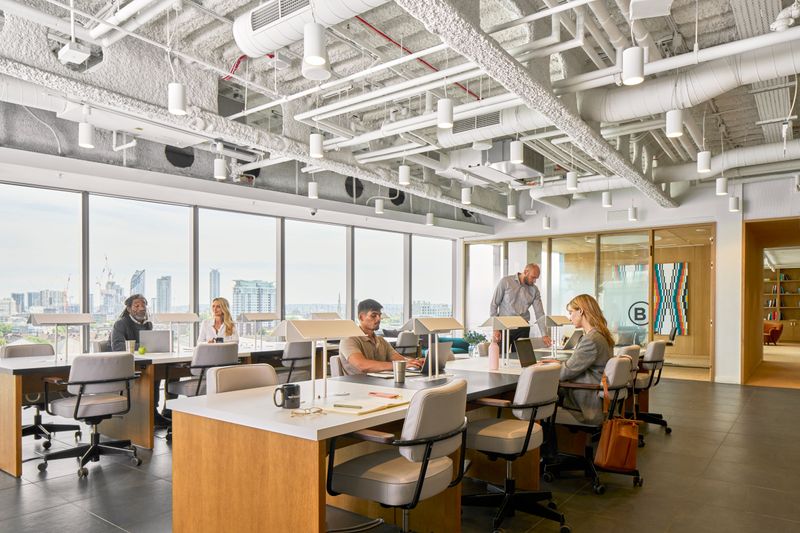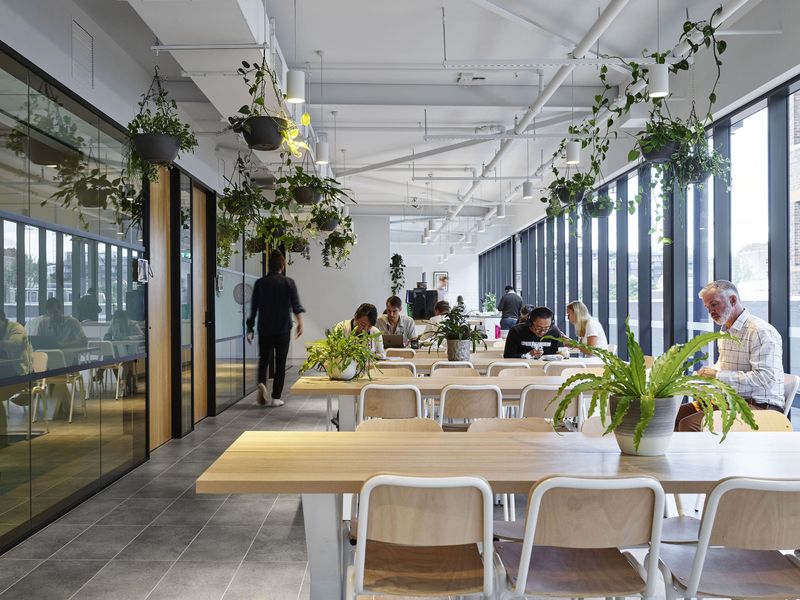In today’s rapidly evolving job market, the generational clash between Gen Z and Boomers is more noticeable than ever. Gen Z, the digitally-native cohort, enters the workplace with fresh perspectives and unique expectations, many of which Boomers find challenging to comprehend or embrace.
This discrepancy often boils down to differing values and experiences, leading to a fascinating dynamic in office environments. While Boomers may prioritize job security and traditional work ethics, Gen Z seeks flexibility, purpose, and innovation. This blog post explores twelve workplace desires of Gen Z that often appear unrealistic to the seasoned Boomer generation, providing insight into the future of work.
1. Flexible Work Hours

Gen Z values flexibility in their work schedules, allowing for a harmonious work-life balance. Unlike Boomers, who grew up in a 9-to-5 era, Gen Z sees work as an activity, not a place. They thrive when given the autonomy to choose hours that suit their peak productivity. This approach can foster creativity and reduce burnout.
For Boomers, accustomed to structured schedules, this flexibility may seem unorthodox. Yet, it aligns with the digital age, where work can seamlessly blend into personal life. Embracing this change requires trust and a shift in management styles.
2. Remote Work Opportunities

Remote work is more than a trend for Gen Z; it’s a necessity. They crave the freedom to work from any location, breaking free from the confines of traditional office environments. This desire for location independence enhances their job satisfaction and productivity.
Boomers, who have long associated work with physical presence, may find this concept impractical. However, the digital landscape supports remote work’s viability, offering tools and platforms that facilitate seamless communication and collaboration across distances.
3. Purpose-Driven Roles

For Gen Z, work isn’t just about earning a paycheck; it’s about making a difference. They seek purpose-driven roles that align with their values, allowing them to contribute positively to society. This intrinsic motivation often surpasses monetary rewards.
Boomers might view this as idealistic, prioritizing stability and financial gains. Yet, companies that embrace this mindset can attract passionate and dedicated employees. Aligning business goals with social impact can redefine success in the modern workplace.
4. Continuous Learning Opportunities

Gen Z thrives on continuous learning, valuing opportunities to expand their skill set. They are drawn to workplaces that invest in professional development, enabling them to adapt to ever-changing industry trends. This hunger for knowledge fuels innovation and personal growth.
Boomers, who may have experienced more traditional career paths, might see this as unnecessary. However, in a rapidly evolving job market, continuous learning is essential for staying competitive and relevant. Employers who prioritize education can harness the full potential of Gen Z talent.
5. Inclusive Work Environments

Inclusivity is at the core of Gen Z’s values, shaping their expectations for the workplace. They seek environments where diversity is celebrated, and everyone feels valued and heard. This desire fosters creativity and innovation, leading to more effective problem-solving.
Boomers may find this focus on diversity overwhelming, coming from a more homogeneous work culture. However, inclusive environments attract top talent and reflect modern societal values. Embracing diversity can lead to a more dynamic and successful organization.
6. Mental Health Support

Gen Z prioritizes mental health, advocating for supportive workplace environments that address stress and burnout. They value employers who offer mental health resources and promote a culture of openness and understanding.
Boomers might view mental health discussions as private matters. However, recognizing the importance of mental well-being can enhance productivity and employee satisfaction. Companies that invest in mental health initiatives demonstrate empathy and care, fostering a more engaged workforce.
7. Transparent Communication

Gen Z champions transparency in the workplace, valuing open communication and honesty from leadership. They seek environments where information flows freely, fostering trust and collaboration. This approach breaks down hierarchies and empowers employees.
Boomers, who may be used to more hierarchical structures, might find this openness challenging. However, transparent communication can lead to a more accountable and engaged workforce, encouraging innovation and creativity. Emphasizing clarity can transform organizational culture.
8. Technological Advancements

In a tech-driven world, Gen Z expects workplaces to stay ahead of the curve. They are drawn to companies that embrace technological advancements, offering tools that enhance efficiency and innovation. This affinity for technology can drive growth and competitive advantage.
Boomers might find constant technological change daunting, preferring tried-and-true methods. However, integrating modern tech can streamline processes and attract forward-thinking talent. Keeping pace with technology is essential for staying relevant in today’s market.
9. Collaborative Workspaces

Gen Z thrives in collaborative workspaces, where creativity and teamwork flourish. They prefer environments that encourage collaboration and idea-sharing, breaking away from traditional cubicle setups. This dynamic fosters innovation and camaraderie.
Boomers, accustomed to more private workspaces, might find this approach noisy or distracting. However, collaborative spaces can boost morale and productivity, creating a sense of community. Embracing open layouts can lead to more effective teamwork and problem-solving.
10. Work-Life Integration

Gen Z blurs the lines between work and life, seeking integration rather than separation. They value the ability to manage personal and professional responsibilities seamlessly, promoting a balanced lifestyle.
Boomers may view this as blending distractions with duties. Yet, work-life integration can enhance well-being and job satisfaction. Companies that support this balance attract loyal employees who appreciate the freedom to prioritize what matters most.
11. Sustainable Practices

Sustainability is a driving force for Gen Z, influencing their workplace choices. They seek employers committed to eco-friendly practices, from reducing carbon footprints to promoting sustainable products. This passion for the planet shapes their career decisions.
Boomers, raised in a different environmental era, might see this as an added expense. However, embracing sustainability can attract environmentally conscious talent and enhance brand reputation. Companies that prioritize green initiatives demonstrate responsibility and foresight.
12. Innovative Career Paths

Gen Z challenges traditional career paths, seeking innovative and unconventional roles. They value opportunities to explore diverse interests and carve out unique career trajectories that reflect their passions.
Boomers might find these nonlinear paths risky, preferring stability and predictability. Yet, embracing career innovation can lead to more fulfilling professional lives and attract adventurous talent. Encouraging diverse experiences enriches the workplace and fosters a culture of exploration and growth.

Well, hello there!
My name is Jennifer. Besides being an orthodontist, I am a mother to 3 playful boys. In this motherhood journey, I can say I will never know everything. That’s why I always strive to read a lot, and that’s why I started writing about all the smithereens I came across so that you can have everything in one place! Enjoy and stay positive; you’ve got this!

